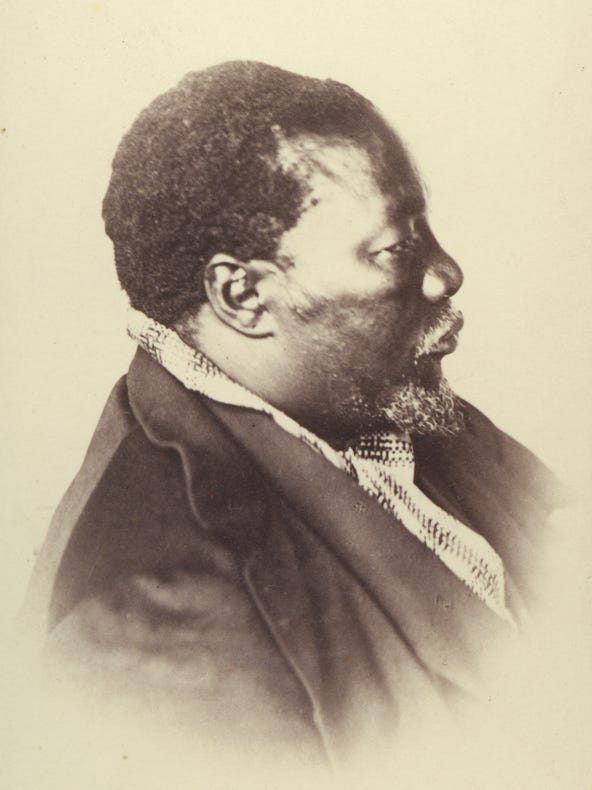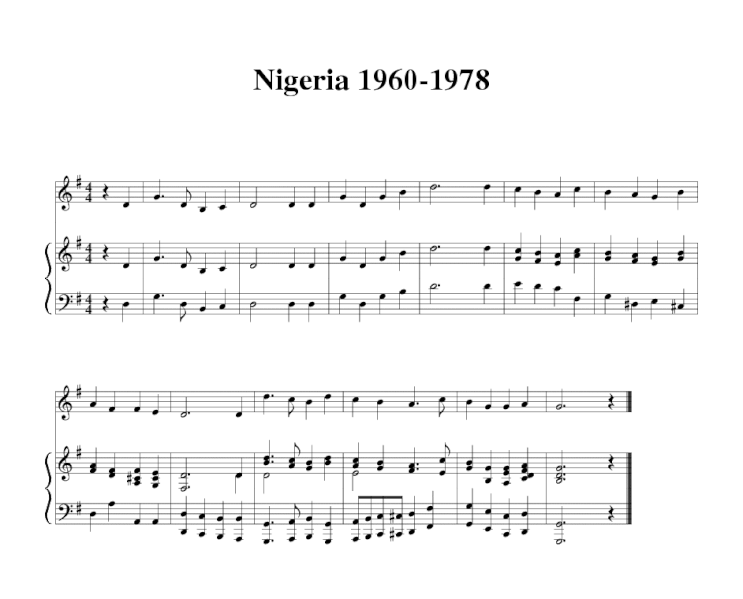🔅 Nigeria's National Anthem Switcheroo
Botswana's Diamond Fightback, and the African Agricultural Paradox.
Photo of the Day
Spotlight Stories
Nigeria's National Anthem Switcheroo: A Blast from the Colonial Past
In a move that has left many Nigerians scratching their heads, the country has decided to revert to a national anthem it dropped nearly 50 years ago.
President Bola Tinubu confirmed the law on Wednesday, just a day after it was approved by both chambers of Nigeria's national assembly in record time.
The Colonial Throwback
The reintroduced anthem, titled "Nigeria, We Hail Thee," was first introduced in 1960 when Nigeria gained independence from Britain. It was written by Lillian Jean Williams, a British expatriate, because nothing says "independence" like having your former coloniser pen your national anthem, right?
The current anthem, "Arise, O Compatriots," was introduced in 1978 under the military government of Olusegun Obasanjo. It calls on Nigerians to serve their fatherland with love and strength and not let the labour of their heroes' past be in vain. But apparently, the government decided that a British-penned anthem was more in line with the country's values.
A Cynical Distraction?
The change of anthem has been met with widespread criticism, with many Nigerians dismissing it as a cynical distraction from the country's escalating economic crisis. Nigeria's economy has plunged during Tinubu's first year in office, with inflation reaching a 28-year high of 33.2%.
Some are calling the change "a waste of time," arguing that the government should be focusing on more pressing issues like inflation and security problems. It's like rearranging the deck chairs on the Titanic while the ship is sinking.
A former education minister and presidential candidate, said the law showed that the country's political class did not care about the public interest. She criticised the new anthem for containing "pejorative words like 'native land' and 'tribes'" and for being foisted on citizens without their consent.
Botswana's President Declares War on Lab-Grown Diamonds
Botswana's President Mokgweetsi Masisi has issued a dire warning: synthetic gems are a threat to the country's economic lifeblood.
As he prepares to launch a $6 billion project to extend the life of the flagship Jwaneng diamond mine, Masisi is gearing up for a "peaceful assault" against lab-grown diamonds.
The natural diamond market has been in a bit of a rough patch lately, with rising consumer demand for cheaper lab-grown diamonds and global macroeconomic volatility.
And Botswana is no small player in the diamond game. The southern African country produced 20% of the world's total rough diamonds in 2022, second only to Russia. But when it comes to value, Botswana reigns supreme as the world's top diamond producer. These sparkling gems contribute up to 40% of government revenue, 75% of foreign exchange earnings, and a third of national output. Talk about putting all your eggs in one bejewelled basket!
"If lab grown diamonds take our space, then you and I are finished."
President Masisi isn't mincing words when it comes to the threat of synthetic gems. He's heading to the JCK Show in Las Vegas, the world's largest jewellery trade event, to promote Botswana as a leading producer of ethically and responsibly sourced diamonds.
He’s on a mission to "give confidence to our partners and dampen any attraction to lab growns."
With so much at stake, Botswana is pulling out all the stops to protect its diamond industry.
From extending the life of its flagship mine to waging a "peaceful assault" against lab-grown diamonds, the country is determined to keep its place as the world's top diamond producer by value.
But in a world where synthetic gems are gaining ground and geopolitical tensions are high, will Botswana's diamonds continue to shine bright?
The Perplexing Paradox of African Agriculture: More Food, Less Efficiency
Sub-Saharan Africa is churning out an amazing six times more food than it did back in 1961. Sounds impressive, right?
Well, hold your applause.
While the rest of the world has only managed to quadruple agricultural output within the same period, Africa is lagging behind in the productivity department. Sure, the continent is moving forward, but not nearly as efficiently as it could be.
Enock Chikava, a Zimbabwean agricultural expert who knows a thing or two about farming, says the key to unlocking Africa's agricultural potential lies in three magic words: innovation, extension, and market incentives.
There's progress on all fronts, like cassava varieties that can quadruple yields and digital farming advice for those who can't afford in-person extension officers. But there's still a long way to go.
Land tenure systems that encourage underutilization and the lure of city life are pulling farmers away from the fields. It's a catch-22: as opportunities outside of farming increase, agricultural productivity declines.
To get sub-Saharan Africa's economic engine revving, fixing farming must be at the top of the to-do list. It's not going to be easy, but with the right mix of innovation, education, and incentives, Africa's agricultural paradox might just become the success story it should be.
Food for Thought
“Teeth do not see poverty."
— Maasai Proverb








